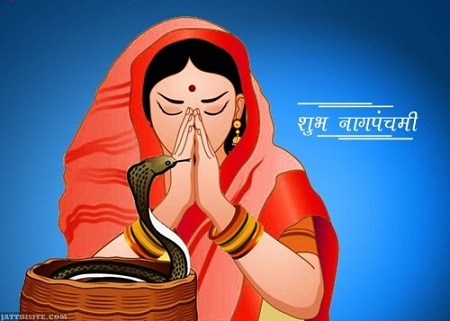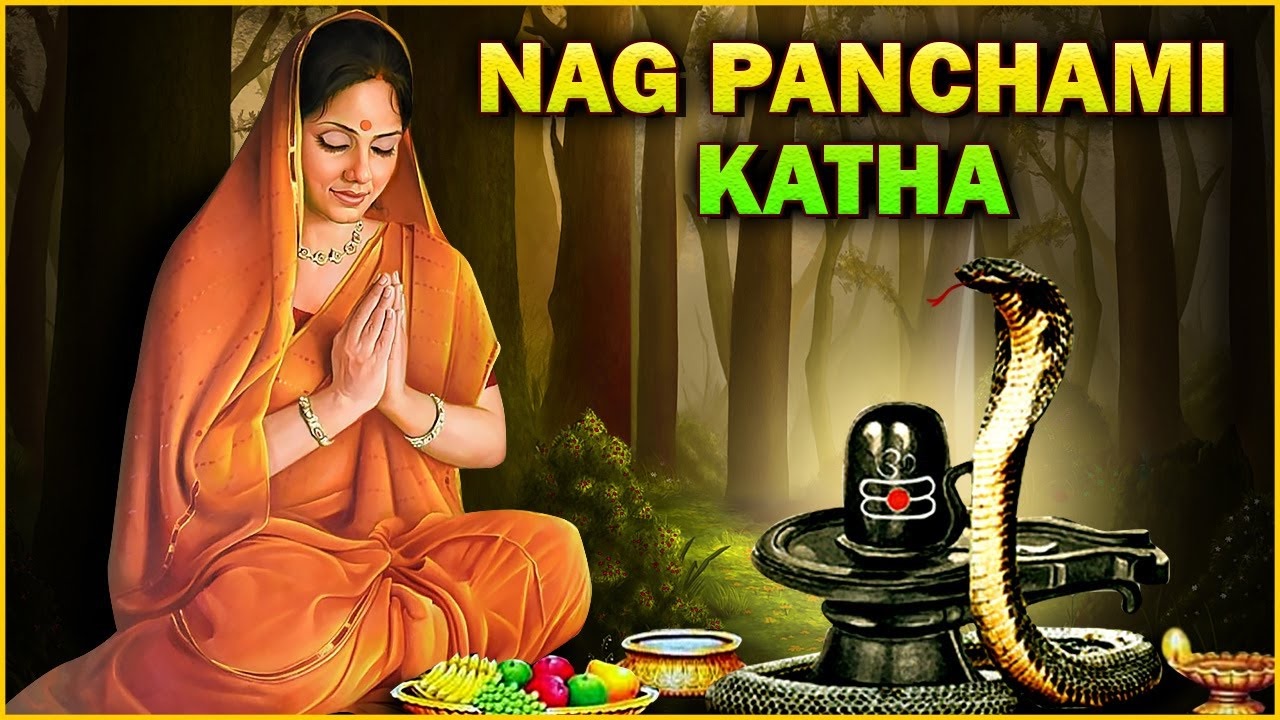The Mythological Roots:
Nag Panchami finds its origins in Hindu mythology, deeply entwined with tales of snakes and serpents. According to legend, Lord Krishna defeated the venomous serpent Kalia, saving the people of the village of Vrindavan. This act of valor and protection gave rise to the tradition of worshipping serpents on this day.
Nag Panchami is dedicated to the worship of snake deities, primarily Lord Shiva as Nageshwar (the Lord of Snakes) and the serpent goddess, Manasa Devi. Snakes hold a special place in Hindu culture, symbolizing protection, fertility, and transformation. Devotees seek blessings from these deities for the well-being of their families and the removal of obstacles.

The Rituals of Worship:
On Nag Panchami, homes across India transform into sanctuaries for snake deities. Images or idols of serpents are crafted with clay or drawn on walls, adorned with flowers, milk, and vermillion. Devotees offer prayers, recite hymns, and perform aarti (rituals of light) to invoke the blessings of the serpentine gods.
The Unique Devotion:
What sets Nag Panchami apart is the unique devotion it inspires. Many devotees observe a fast on this day, abstaining from food and drink until the rituals are completed. This sacrifice symbolizes the earnestness of their prayers and their dedication to the serpent deities.

The Cultural Significance:
Beyond its spiritual essence, Nag Panchami is a celebration of cultural diversity. The festival is observed across India, with regional variations that add to its rich tapestry. In some places, it's celebrated with processions, folk dances, and songs dedicated to the serpents.
The Relevance Today:
In a rapidly changing world, Nag Panchami continues to evolve. While the core rituals remain intact, there's a growing awareness of the need for eco-friendly celebrations. Many people now use clay idols or images drawn with organic colors to minimize environmental impact.
Conclusion:
Nag Panchami is a festival that invites us to explore the
mystical realm of serpent deities, paying homage to the protectors of land and
life. As we worship the serpents with reverence and devotion, let us remember
that this day is not just about rituals but also about the significance of
ancient traditions and the cultural heritage they carry forward. Nag Panchami
is a reminder of our connection to nature and the enduring spirituality that
binds us to the world around us.

